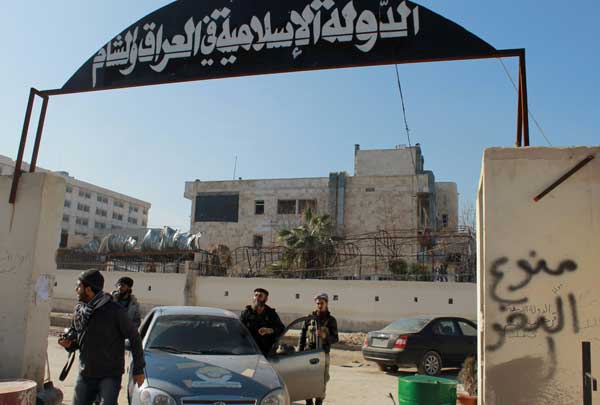Reply To:
Name - Reply Comment
Last Updated : 2024-04-24 06:20:00

.jpg) The war in Syria is exploding in Iraq. The most dreaded al-Qaeda offshoot group, the Islamic State in Iraq and Syria (ISIS), a.k.a. Islamic State in Iraq and Levant (ISIL), in a surprise move captured two key cities in Iraq’s largest province, Anbar, last week. The Shiite-dominated Nouri al-Maliki government, which is accused of being on a witch-hunt against the country’s Sunni minority, is fighting hard to take back the two cities – Fallujah and Ramadi -- even as the United States rushes sophisticated weapons such as Hellfire missiles and drones.
The war in Syria is exploding in Iraq. The most dreaded al-Qaeda offshoot group, the Islamic State in Iraq and Syria (ISIS), a.k.a. Islamic State in Iraq and Levant (ISIL), in a surprise move captured two key cities in Iraq’s largest province, Anbar, last week. The Shiite-dominated Nouri al-Maliki government, which is accused of being on a witch-hunt against the country’s Sunni minority, is fighting hard to take back the two cities – Fallujah and Ramadi -- even as the United States rushes sophisticated weapons such as Hellfire missiles and drones..jpg)
.jpg) When the Syrian crisis reached a stalemate, al-Baghdadi sent a small band of foot jihadists to Syria. Their success won them many recruits. Within months, much of northern and eastern Syria came under al-Baghdadi’s ISIS control. The group also controls several cities and towns close to Syria’s border with Turkey. Al-Baghdadi, it is said, leads a 10,000 strong rebel force in Syria alone. Its members include foreign jihadists. However, latest reports say ISIS is losing ground in Syria to rival al-Qaeda groups such as Jabhat-un Nusra, Liwa al-Islam and the Islamic Front.
When the Syrian crisis reached a stalemate, al-Baghdadi sent a small band of foot jihadists to Syria. Their success won them many recruits. Within months, much of northern and eastern Syria came under al-Baghdadi’s ISIS control. The group also controls several cities and towns close to Syria’s border with Turkey. Al-Baghdadi, it is said, leads a 10,000 strong rebel force in Syria alone. Its members include foreign jihadists. However, latest reports say ISIS is losing ground in Syria to rival al-Qaeda groups such as Jabhat-un Nusra, Liwa al-Islam and the Islamic Front.
Add comment
Comments will be edited (grammar, spelling and slang) and authorized at the discretion of Daily Mirror online. The website also has the right not to publish selected comments.
Reply To:
Name - Reply Comment
US authorities are currently reviewing the manifest of every cargo aboard MV
On March 26, a couple arriving from Thailand was arrested with 88 live animal
According to villagers from Naula-Moragolla out of 105 families 80 can afford
Is the situation in Sri Lanka so grim that locals harbour hope that they coul